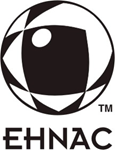Health Insurance Portability and Accountability Act of 1996 (HIPAA)
See the following -
A New Pothole on the Health Interoperability Superhighway
On July 24, the new administration kicked off their version of interoperability work with a public meeting of the incumbent trust brokers. They invited the usual suspects Carequality, CARIN Alliance, CommonWell, Digital Bridge, DirectTrust, eHealth Exchange, NATE, and SHIEC with the goal of driving for an understanding of how these groups will work with each other to solve information blocking and longitudinal health records as mandated by the 21st Century Cures Act...
- Login to post comments
ABILITY Network Achieves Cloud-Enabled Accreditation Program (CEAP) from EHNAC
 ABILITY Network, a leading information technology company, announced today it has achieved full accreditation with the Cloud-Enabled Accreditation Program (CEAP) from the Electronic Healthcare Network Accreditation Commission (EHNAC). ABILITY is one of the first healthcare information technology companies to achieve this new designation. Developed by industry peers, CEAP is offered exclusively for the users of FedRAMP-certified Cloud Service Providers (CSPs) – regardless of the healthcare data exchange model the CSP supports...
ABILITY Network, a leading information technology company, announced today it has achieved full accreditation with the Cloud-Enabled Accreditation Program (CEAP) from the Electronic Healthcare Network Accreditation Commission (EHNAC). ABILITY is one of the first healthcare information technology companies to achieve this new designation. Developed by industry peers, CEAP is offered exclusively for the users of FedRAMP-certified Cloud Service Providers (CSPs) – regardless of the healthcare data exchange model the CSP supports...
- Login to post comments
Amazon Digital Health Talent Grab: Box Exec Reportedly Joins Team
 Amazon is quietly building up its digital health tech talent, reportedly poaching a healthcare exec from Box. The Seattle behemoth may be best known for its retail business, but in the background it has a growing footprint in all manner of health technology areas. This latest Amazon talent grab appears to be another move to shore up those...
Amazon is quietly building up its digital health tech talent, reportedly poaching a healthcare exec from Box. The Seattle behemoth may be best known for its retail business, but in the background it has a growing footprint in all manner of health technology areas. This latest Amazon talent grab appears to be another move to shore up those...
- Login to post comments
AMIA Calls For Patient Access to Complete Health Information
 AMIA has urged the federal government to repeal a regulation on unstructured EHR data that could help patients access their health information. At the 2016 ONC Annual Meeting, the American Medical Informatics Association (AMIA) has asked the federal government to repeal the prohibition on the use of unstructured data in order to help patients access all of their health information...
AMIA has urged the federal government to repeal a regulation on unstructured EHR data that could help patients access their health information. At the 2016 ONC Annual Meeting, the American Medical Informatics Association (AMIA) has asked the federal government to repeal the prohibition on the use of unstructured data in order to help patients access all of their health information...
- Login to post comments
AMIA’s Doug Fridsma: Time for the Feds to Truly Open Up Patient Records to Fully Interoperable Data Use
 Access to information and the ability to integrate and use information has changed how individuals book travel, find information about prices and products, and compare and review services. Information can empower individuals, but health care has lagged behind other fields. It is unconscionable that in 2016 most patients are unable to obtain their entire medical record unless they print it out. While progress has been made in the last several years to support patients’ access to their information through various electronic means, such as Blue Button and patient portals, this is not sufficient to make patients first-order participants in their care, their health and their research efforts...
Access to information and the ability to integrate and use information has changed how individuals book travel, find information about prices and products, and compare and review services. Information can empower individuals, but health care has lagged behind other fields. It is unconscionable that in 2016 most patients are unable to obtain their entire medical record unless they print it out. While progress has been made in the last several years to support patients’ access to their information through various electronic means, such as Blue Button and patient portals, this is not sufficient to make patients first-order participants in their care, their health and their research efforts...
- Login to post comments
EHNAC Applauds Health Care Industry Cybersecurity (HCIC) Task Force Report and Recommendations
 The Electronic Healthcare Network Accreditation Commission (EHNAC), a non-profit standards development organization and accrediting body for organizations that electronically exchange healthcare data, today announced its support of the Health Care Industry Cybersecurity (HCIC) Task Force’s June 2 report to Congress titled Report on Improving Cybersecurity in the Health Care Industry and the recommendations therein. The Health Care Industry Cybersecurity (HCIC) Task Force was established by the Department of Health and Human Services (HHS) in March 2016 per the Cybersecurity Act of 2015, Section 405(c). EHNAC applauds HHS and the expert panel of subject matter experts on the HCIC Task Force who contributed to develop these recommendations to strengthen the privacy and security of U.S. healthcare data...
The Electronic Healthcare Network Accreditation Commission (EHNAC), a non-profit standards development organization and accrediting body for organizations that electronically exchange healthcare data, today announced its support of the Health Care Industry Cybersecurity (HCIC) Task Force’s June 2 report to Congress titled Report on Improving Cybersecurity in the Health Care Industry and the recommendations therein. The Health Care Industry Cybersecurity (HCIC) Task Force was established by the Department of Health and Human Services (HHS) in March 2016 per the Cybersecurity Act of 2015, Section 405(c). EHNAC applauds HHS and the expert panel of subject matter experts on the HCIC Task Force who contributed to develop these recommendations to strengthen the privacy and security of U.S. healthcare data...
- Login to post comments
Harvard Docs: Time Is Right for Patient-Centered Health Repositories, Not Portals
 A number of public and private initiatives have been launched over the years in the name of a personal health record for patients. But one way or another, they've all failed to gain traction, according to Drs. Isaac Kohane and Kenneth Mandl of the Harvard-affiliated Boston Children's Hospital, who published an editorial in the New England Journal of Medicine last week. The authors believe now might be the time to finally realize that ambition...
A number of public and private initiatives have been launched over the years in the name of a personal health record for patients. But one way or another, they've all failed to gain traction, according to Drs. Isaac Kohane and Kenneth Mandl of the Harvard-affiliated Boston Children's Hospital, who published an editorial in the New England Journal of Medicine last week. The authors believe now might be the time to finally realize that ambition...
- Login to post comments
HHS Makes Changes to 'Wall of Shame' Breach Reporting Site
The Department of Health and Human Services has made changes to its website, widely referred to as the "wall of shame," that lists reports of major health data breaches affecting 500 or more individuals. The changes come after complaints from some members of Congress and others that the website unfairly exposes breached organizations to endless public scrutiny because incidents are indefinitely listed on the site...
- Login to post comments
Keeping Patient Data Safe with Open Source Tools
 Healthcare is experiencing a revolution. In a tightly regulated and ancient industry, the use of free and open source software makes it uniquely positioned to see a great deal of progress. I work at a scrappy healthcare startup where cost savings are a top priority. Our primary challenge is how to safely and efficiently manage personally identifying information (PII), like names, addresses, insurance information, etc., and personal health information (PHI), like the reason for a recent clinical visit, under the regulations of the Health Insurance Portability and Accountability Act of 1996, HIPAA, which became mandatory in the United States in 2003.
Healthcare is experiencing a revolution. In a tightly regulated and ancient industry, the use of free and open source software makes it uniquely positioned to see a great deal of progress. I work at a scrappy healthcare startup where cost savings are a top priority. Our primary challenge is how to safely and efficiently manage personally identifying information (PII), like names, addresses, insurance information, etc., and personal health information (PHI), like the reason for a recent clinical visit, under the regulations of the Health Insurance Portability and Accountability Act of 1996, HIPAA, which became mandatory in the United States in 2003.
- Login to post comments
Key Organizations Come Together in Support of Patient-Centered and Interoperable Health IT
 The National Association for Trusted Exchange (NATE) and CommonWell Health Alliance® today announced that each would become a member of the other’s organization. They have agreed to establish a mutual synergistic and complementary relationship with the goal of enhancing cross-vendor interoperability to better assure provider and patient access to health data regardless of where care occurs. NATE is a not-for-profit membership association focused on enabling trusted exchange among organizations and individuals with differing regulatory environments and exchange preferences...
The National Association for Trusted Exchange (NATE) and CommonWell Health Alliance® today announced that each would become a member of the other’s organization. They have agreed to establish a mutual synergistic and complementary relationship with the goal of enhancing cross-vendor interoperability to better assure provider and patient access to health data regardless of where care occurs. NATE is a not-for-profit membership association focused on enabling trusted exchange among organizations and individuals with differing regulatory environments and exchange preferences...
- Login to post comments
Len's Lens: Privacy and Personal Health Information
So you are a health professional or knowledgeable consumer and think you understand the issues surrounding privacy and exchange of personal health information? So did I, until I recently became a patient and had the temerity (or is that foolishness and patience?) to actually read the consent when I went to the outpatient surgical center for a cancer screening procedure. And what I read was -- to say the least -- disturbing. When it came to sharing my health information, there were no middle options: either it could be shared with other exchanges, vendors, consultants, and others nationwide, or I wouldn't be able to get access when I really needed it -- especially in an emergency situation...
- Login to post comments
ONC Interoperability Meeting Raises More Questions Than Answers
 ONC’s first public event under the new administration was very well organized and run. Eight leading health information exchange incumbents were able to describe their current approaches and plans, the patient advocate position was clearly stated, and a nice synthesis of the issues raised by the trusted framework approach to interoperability was prepared by a consulting organization. Much to ONC’s credit, they went out of their way to provide access and public comment to an extent that is unprecedented in my experience. Slides and recordings will be posted soon and a 30-day comment period runs through August 24. Kudos to ONC...
ONC’s first public event under the new administration was very well organized and run. Eight leading health information exchange incumbents were able to describe their current approaches and plans, the patient advocate position was clearly stated, and a nice synthesis of the issues raised by the trusted framework approach to interoperability was prepared by a consulting organization. Much to ONC’s credit, they went out of their way to provide access and public comment to an extent that is unprecedented in my experience. Slides and recordings will be posted soon and a 30-day comment period runs through August 24. Kudos to ONC...
- Login to post comments
ONC Playbook Breaks Down Health IT, EHR Tasks and Buzzwords
 The healthcare industry seems to be largely driven by buzzwords: quick and snappy phrases that reduce complex, difficult, expensive and often confusing initiatives into keywords that may not mean much to the uninitiated. From big data and population health management to electronic health records and value-based care, these short and sweet terms have come to define the new direction of one of the nation’s largest sectors...
The healthcare industry seems to be largely driven by buzzwords: quick and snappy phrases that reduce complex, difficult, expensive and often confusing initiatives into keywords that may not mean much to the uninitiated. From big data and population health management to electronic health records and value-based care, these short and sweet terms have come to define the new direction of one of the nation’s largest sectors...
- Login to post comments
OpenNotes Now: How the Movement Will Change the Physician-Patient Relationship
Every movement needs an early, visionary leader, and the OpenNotes movement has been no exception—it’s got Tom Delbanco, M.D. Delbanco, who practiced as an internal medicine physician for 40 years, several years ago joined together with Jan Walker, R.N. to initiate a movement that is now sweeping the country and changing healthcare—and creating numerous implications for healthcare IT leaders in its wake...
- Login to post comments
The Best Way to Share Health Records? An App in Patients’ Hands
 Much has been written recently about information blocking—the inability or unwillingness of hospitals and doctors to share electronic data from our health records with one another. Lack of technical interoperability and regulations protecting security, privacy, and confidentiality are often blamed. But the reality is that technical barriers are falling. The same technology that enables your smartphone to pull sensitive financial data from your bank to pay your taxes or a taxi driver can be applied to your health care records. More importantly, the regulatory path to health records sharing is now open—the rules are already on the books.
Much has been written recently about information blocking—the inability or unwillingness of hospitals and doctors to share electronic data from our health records with one another. Lack of technical interoperability and regulations protecting security, privacy, and confidentiality are often blamed. But the reality is that technical barriers are falling. The same technology that enables your smartphone to pull sensitive financial data from your bank to pay your taxes or a taxi driver can be applied to your health care records. More importantly, the regulatory path to health records sharing is now open—the rules are already on the books.
- Login to post comments